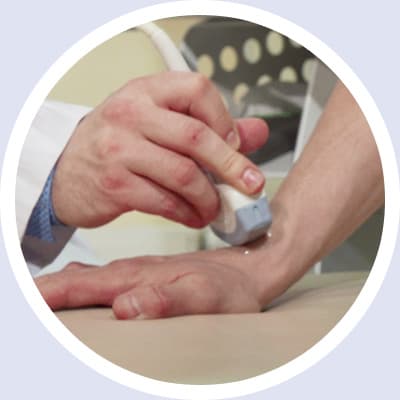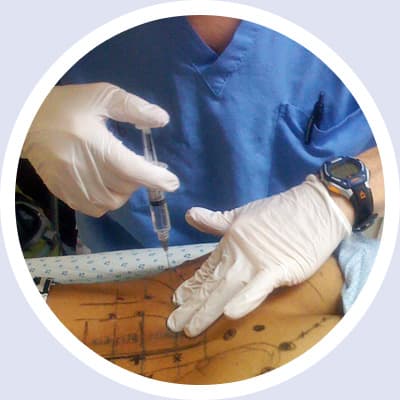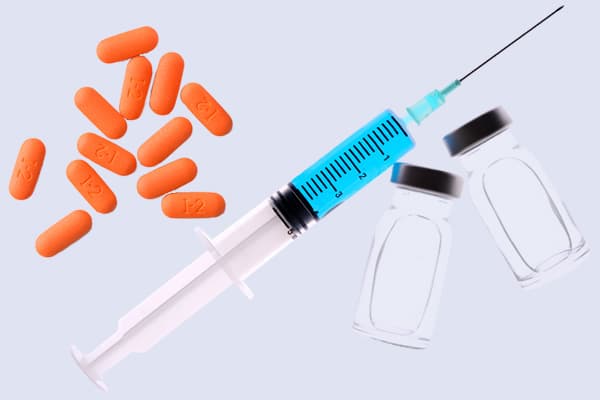Wrist Pain Solutions
The wrist and hands are very prone to injuries from overuse or trauma. Common pain syndromes include Carpal Tunnel Syndrome, ligament injuries including Scapholunate ligament and Triangular Fibrocartilage Complex injury (TFCC).
The use of our hands, wrists and in particular our thumb is essential in our activities of daily life and injury and subsequent pain in the wrist and hands can be very debilitating and interrupt work and school activities. Recovery from wrist and hand injuries can be slow and painful and difficult since it is hard to rest these areas, and there is no single wrist pain remedy. Fortunately, wrist and hand injuries are particularly responsive to regenerative medicine therapies.
Common types of wrist & hand injuries include:
The wrist and hands are very prone to injuries from overuse or trauma. Common pain syndromes include Carpal Tunnel Syndrome, ligament injuries including Scapholunate ligament and Triangular Fibrocartilage Complex injury (TFCC).
The use of our hands, wrists and in particular our thumb is essential in our activities of daily life and injury and subsequent pain in the wrist and hands can be very debilitating and interrupt work and school activities. Recovery from wrist and hand injuries can be slow and painful and difficult since it is hard to rest these areas, and there is no single wrist pain remedy. Fortunately, wrist and hand injuries are particularly responsive to regenerative medicine therapies.
Common types of wrist & hand injuries include:
Osteoarthritis of the Thumb
Carpal Metacarpal (CMC) Joint Injuries
Scapholunate Ligament Injury (SLI)
Carpal Tunnel Syndrome
The Carpal Tunnel occurs when the space where tendons and the Median nerve run through compresses the nerve. If the tunnel becomes inflamed the structures that pass through it can be compressed and injured. This can be from repetitive movement such as typing, or repeat motions seen in factory workers. Symptoms can include a tingling in the thumb and first 3 fingers, numbness, shock like pain, weakness and decreased ability to grip objects. Women are affected more than men and can become more prominent during pregnancy.
Carpal Tunnel Syndrome is particularly responsive to Hydrodissection. Hydrodissection is a technique used for peripheral nerve entrapments and involves using a saline solution to separate the nerve from the surrounding tissue structure freeing up the nerve and reducing pain without the need for surgery. Dr. Krasnick performs hydrodissection for Carpal Tunnel Syndrome with the use of ultrasound guidance which allows him to be highly accurate.
Triangular Fibrocartilage Complex (TFCC)
The Triangular Fibrocartilage Complex is a collection of ligaments, tendons and cartilage that sits between the two arm bones (ulna and radius) on the small finger side. Injury to this area causes pain along this side of the wrist. This area is particularly vulnerable to injury. The TFCC is an important stabilizing structure in moving the wrist, rotating the forearm and supporting the forearm when the palm is gripping an object.
There are two types of TFCC injuries:
- Type 1. These tears result from physical injury, such as when a person overextends or over-rotates their wrist, or when they fall on their hand with it extended.
- Type 2. Also called chronic tears. This occurs gradually and can result from damage due to aging or an underlying condition, such as gout or rheumatoid arthritis.
Symptoms include clicking or popping sound, stiffness, swelling, weakness, pain and limited range of motion in the hand and wrist.
THE KRASNICK SOLUTION
How can Dr. Krasnick help you recover and restore naturally to health without drugs or surgery?

EXAM & DIAGNOSIS
Before a patient can be treated for wrist and hand pain, a correct diagnosis must be made.
Learn More
First, Dr. Krasnick will obtain a detailed history and perform a thorough physical examination. Frequently a musculoskeletal ultrasound will be done to understand where your wrist and hand pain is coming from. If you have any imaging studies such as X-rays, MRI or CT Scans, please bring the actual images to the appointment for Dr. Krasnick to review himself.

TREATMENT PROGRAM
Once a diagnosis is made, a comprehensive treatment program will be determined.
Learn More
This may include regenerative medical treatments such as: Prolotherapy, Platelet Rich Plasma (PRP), Stem Cell Therapy, Prolozone™, Neural Prolotherapy (Lyftogt Technique®) and Hydrodissection. None of these treatments contain any drugs, steroids, narcotics or NSAIDs, are performed in the office and do not require surgery. Dr. Krasnick performs injections under ultrasound guidance, so he is highly accurate in injecting the treatment to the exact location needed. These treatments allow the body’s own natural healing powers to recover and restore to health.

HEALTH & WELLNESS
To optimize treatment, we focus on the whole patient and not just the wrist or hand pain.
Learn More
This means Dr. Krasnick will investigate, discuss and make recommendations about your health and wellness. Important factors in order to optimize outcomes include cellular health. This entails optimizing your nutrition and diet to ensure you are getting the proper macro and micronutrients. Simple changes in diet and addition of vitamins and supplements can go a long way to improving outcomes. Dr. Krasnick will also focus on functional movement, which includes strength and flexibility. We know the body, especially, the musculoskeletal system acts as a whole and therefore pre- and post-treatment exercise or physical therapy will be recommended. Of course treatment and attention to the injured structure (joint or surrounding ligaments and tendons) will be discussed in detail, with specific post-procedure protocols when needed.
A procedure is not always needed and when possible trying to solve the problem with other noninvasive and holistic approaches will be sought as a hand and wrist pain solution.
None of the regenerative treatments contain any drugs, steroids, narcotics or NSAIDs, are performed in the office and do not require surgery. Dr. Krasnick performs injections under ultrasound guidance, so he is highly accurate in injecting the treatment to the exact location needed. These treatments allow the body’s own natural healing powers to recover and restore to health.
If you are looking for a non-surgical, drug-free, natural, alternative pain treatment for your wrist and hand pain, then contact us at (734) 585-5653 to schedule a consultation with Dr. Krasnick.
OVERVIEW OF WRIST & HAND INJURIES
Osteoarthritis of the Thumb
More About This Condition
Carpal Metacarpal (CMC) Joint Injuries
More About This Condition
Scapholunate Ligament Injury (SLI)
More About This Condition
Carpal Tunnel Syndrome
More About This Condition
The Carpal Tunnel occurs when the space where tendons and the Median nerve run through compresses the nerve. If the tunnel becomes inflamed the structures that pass through it can be compressed and injured. This can be from repetitive movement such as typing, or repeat motions seen in factory workers. Symptoms can include a tingling in the thumb and first 3 fingers, numbness, shock like pain, weakness and decreased ability to grip objects. Women are affected more than men and can become more prominent during pregnancy.
Carpal Tunnel Syndrome is particularly responsive to Hydrodissection. Hydrodissection is a technique used for peripheral nerve entrapments and involves using a saline solution to separate the nerve from the surrounding tissue structure freeing up the nerve and reducing pain without the need for surgery. Dr. Krasnick performs hydrodissection for Carpal Tunnel Syndrome with the use of ultrasound guidance which allows him to be highly accurate.
Triangular Fibrocartilage Complex (TFCC)
More About This Condition
The Triangular Fibrocartilage Complex is a collection of ligaments, tendons and cartilage that sits between the two arm bones (ulna and radius) on the small finger side. Injury to this area causes pain along this side of the wrist. This area is particularly vulnerable to injury. The TFCC is an important stabilizing structure in moving the wrist, rotating the forearm and supporting the forearm when the palm is gripping an object.
There are two types of TFCC injuries:
- Type 1. These tears result from physical injury, such as when a person overextends or over-rotates their wrist, or when they fall on their hand with it extended.
- Type 2. Also called chronic tears. This occurs gradually and can result from damage due to aging or an underlying condition, such as gout or rheumatoid arthritis.
Symptoms include clicking or popping sound, stiffness, swelling, weakness, pain and limited range of motion in the hand and wrist.
Traditional treatments. Have you tried them and still have pain?
Non-Steroidal-Anti-Inflammatory-Drugs (NSAIDS) such as Ibuprofen, Advil and Motrin can temporarily relieve pain, but also reduce the cells that are needed to repair damaged tendons and ligaments and this can lead to more instability and pain! NSAIDS can also lead to bleeding in the stomach, ulcers and kidney damage. Narcotics are also used but can lead to side effects of constipation and drug dependency. For some patients, surgery is considered, but has greater risks such as infection or more pain.

